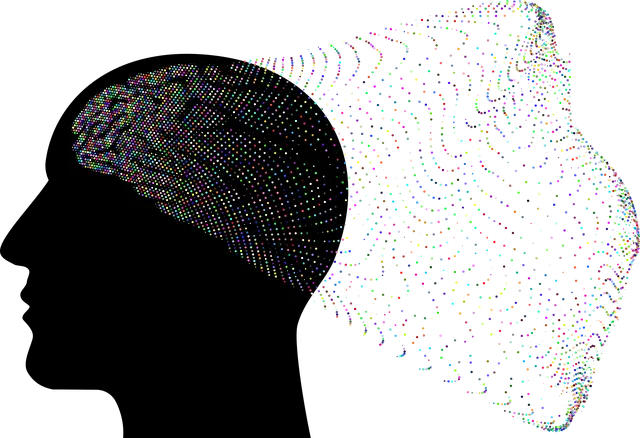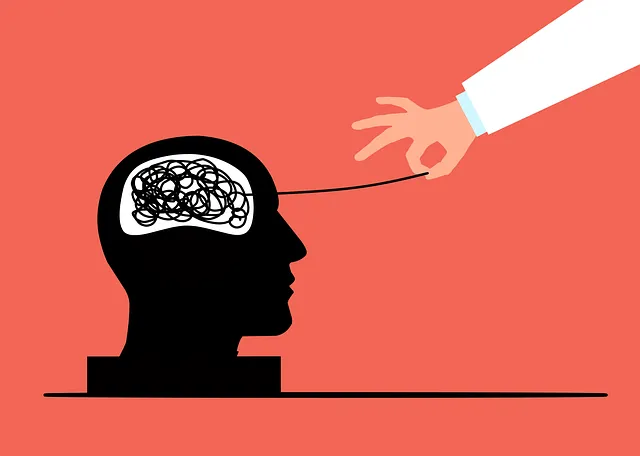Kaiser Permanente Mental Health in Parker emphasizes the importance of coping skills for navigating life's challenges and maintaining resilience. They promote public awareness campaigns and education to normalize conversations about mental well-being, encouraging early support and revolutionizing societal perceptions. The Parker Model provides a structured framework for mental health professionals to develop comprehensive coping skills through evidence-based practices like Mindfulness Meditation. Personalized coping strategies, identified through initiatives like Stress Management Workshops and podcasts, empower healthcare providers to manage their mental health proactively. Integrating techniques such as journaling, mindfulness, social skills training, and community outreach fosters robust coping skills and support networks, enhancing overall mental wellness.
“Unwind and thrive with proven coping skills development strategies. This comprehensive guide explores effective techniques to navigate life’s challenges, inspired by insights from Kaiser Permanente Mental Health and the revolutionary Parker Model. Discover a personalized journey towards resilience, learning to identify and integrate powerful coping strategies into your daily routine.
From understanding the basics to building a robust support system, this article equips you with tools to enhance mental well-being. Uncover the secrets of fostering community connections and engaging professionals for an all-encompassing approach to emotional health.”
- Understanding Coping Skills: An Overview by Kaiser Permanente Mental Health
- The Parker Model: A Comprehensive Framework for Skill Development
- Identifying Personal Coping Strategies: A Journey to Resilience
- Integrating Effective Techniques into Daily Life
- Building a Support System: The Role of Community and Professionals
Understanding Coping Skills: An Overview by Kaiser Permanente Mental Health

According to Kaiser Permanente Mental Health, coping skills are the strategies individuals use to navigate and manage life’s challenges, stresses, and emotional distress. These skills are essential for maintaining mental wellness and overall resilience. Understanding coping mechanisms is a crucial step in enhancing mental health, as it equips people with tools to cope effectively during difficult times.
Kaiser Permanente highlights that developing healthy coping skills involves recognizing triggers, understanding one’s emotions, and employing strategies like mindfulness, exercise, social support, and seeking professional help when needed. The organization emphasizes the role of public awareness campaigns and mental health education programs in promoting these skills. Such initiatives aim to foster a culture where talking about mental health is normalized, encouraging people to seek support early on, just as they would for physical well-being, thereby revolutionizing societal perceptions and improving overall mental health outcomes in Parker and beyond.
The Parker Model: A Comprehensive Framework for Skill Development

The Parker Model offers a structured approach to coping skills development, providing a comprehensive framework that Kaiser Permanente mental health professionals can utilize. This model emphasizes a holistic view of skill acquisition, encompassing not just technical expertise but also emotional resilience and personal growth. By integrating evidence-based practices, such as Mindfulness Meditation, into their training programs, mental health professionals can enhance their ability to navigate complex patient scenarios and mitigate burnout prevention risks.
This framework guides practitioners through various stages, starting from self-awareness and reflection, where professionals recognize their strengths and areas for improvement, to skill acquisition and application in clinical settings. Effective risk management planning for mental health professionals is fostered through continuous practice and feedback mechanisms, ensuring that coping skills remain sharp and relevant in the dynamic landscape of mental healthcare.
Identifying Personal Coping Strategies: A Journey to Resilience

Identifying Personal Coping Strategies is a vital step on the journey to resilience, especially in demanding fields like healthcare. At Kaiser Permanente mental health services, we understand that healthcare providers, like those at Parker, face unique challenges that can lead to burnout if left unaddressed. This is where developing a toolkit of personal coping strategies becomes essential. By recognizing and employing effective techniques, individuals can enhance their ability to navigate stress and maintain emotional well-being.
Through Stress Management Workshops Organization and Mental Wellness Podcast Series Production, we aim to empower healthcare professionals with tools to manage their mental health proactively. These initiatives focus on teaching practical burnout prevention strategies for Healthcare Providers, fostering a culture of resilience within the community. By sharing personal experiences, tactics, and insights, individuals can discover coping mechanisms tailored to their unique needs, ensuring they remain equipped to handle the demands of their profession.
Integrating Effective Techniques into Daily Life

Integrating effective coping techniques into daily life is a key aspect of maintaining mental wellness, as promoted by Kaiser Permanente mental health services. The first step involves identifying personalized strategies that resonate with individual needs and preferences. For instance, Parker suggests incorporating journaling as a means to reflect on emotions and experiences, providing valuable insights for self-awareness and stress management. Regular practice can transform journaling into an empowering tool that enhances mental wellness.
Moreover, exercises offering guidance on mindfulness and relaxation techniques can significantly contribute to coping skill development. Social skills training and community outreach program implementations also play vital roles in fostering connections and support networks. These initiatives enable individuals to share experiences, gain diverse perspectives, and develop enhanced coping mechanisms tailored to their unique circumstances.
Building a Support System: The Role of Community and Professionals

Building a strong support system is an essential aspect of coping skills development, and it involves both community connections and access to professional help. Community support can be a powerful tool for mental wellness, offering a sense of belonging and understanding. Local groups, peer support networks, and community centers provide spaces where individuals can share experiences, gain different perspectives, and learn valuable coping strategies from one another. This social aspect is particularly beneficial in preventing burnout, as it allows people to lean on others during challenging times.
Professionals play a crucial role in guiding individuals through their mental health journeys, especially when dealing with complex issues. Kaiser Permanente mental health services, for instance, offer specialized care tailored to diverse needs. Therapists, counselors, and psychiatrists can provide evidence-based treatments, such as cognitive-behavioral therapy, to aid in mood management. These professionals empower individuals with coping mechanisms, ensuring they have the tools to navigate life’s stresses effectively and fostering a sense of resilience.
In light of the above discussions, coping skills development is a multifaceted journey towards resilience. By understanding various frameworks like the Parker Model and leveraging resources offered by organizations such as Kaiser Permanente Mental Health, individuals can identify and integrate effective coping strategies into their daily lives. Building a robust support system, encompassing both community and professional help, is crucial for long-term mental well-being. Remember that, with dedication and the right tools, cultivating strong coping skills can significantly enhance one’s ability to navigate life’s challenges.






